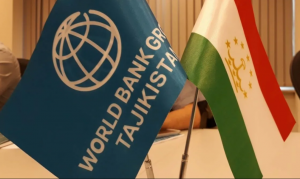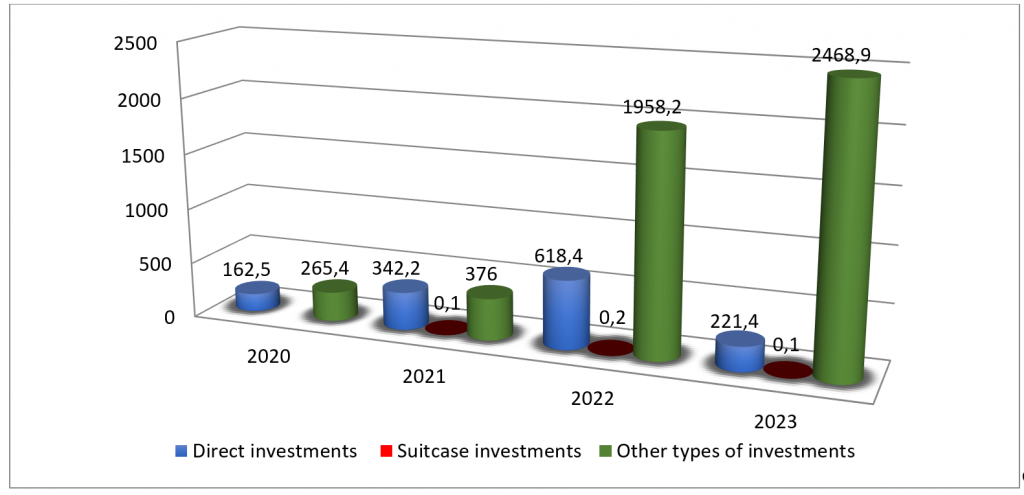 Republic of Tajikistan from the first days of getting Independence, the established beneficial cooperation with economic and financial organizations of the world, including the World Bank at the necessary level. This organization provides financial services for the development of individual spheres of the national economy of the member States. The Republic of Tajikistan also as a full-fledged member of the international community, it cooperates with the World Bank, and the direction of its institutions covers different fields of the national economy, which has established important financial cooperation in various sectors in the implementation of the country’s economic policy since the first years of independence. At the same time, in the implementation of the «Program of Economic Reforms of the Republic of Tajikistan for 1995-2000», «Strategies for Reducing Poverty in the Republic of Tajikistan for 2010-2012», supporting the private sector, improving the state of the country’s economic infrastructure, implementing fiscal policy and other government programs. has a significant role. Because in the difficult financial conditions of the years of the civil war and the period of reconstruction of the post-war destruction, this organization was considered one of the most reliable partners of the Republic of Tajikistan.
Republic of Tajikistan from the first days of getting Independence, the established beneficial cooperation with economic and financial organizations of the world, including the World Bank at the necessary level. This organization provides financial services for the development of individual spheres of the national economy of the member States. The Republic of Tajikistan also as a full-fledged member of the international community, it cooperates with the World Bank, and the direction of its institutions covers different fields of the national economy, which has established important financial cooperation in various sectors in the implementation of the country’s economic policy since the first years of independence. At the same time, in the implementation of the «Program of Economic Reforms of the Republic of Tajikistan for 1995-2000», «Strategies for Reducing Poverty in the Republic of Tajikistan for 2010-2012», supporting the private sector, improving the state of the country’s economic infrastructure, implementing fiscal policy and other government programs. has a significant role. Because in the difficult financial conditions of the years of the civil war and the period of reconstruction of the post-war destruction, this organization was considered one of the most reliable partners of the Republic of Tajikistan.
The government of the Republic of Tajikistan from the first days of gaining state independence has been continuously improving legal regulations of the economic and financial sectors, including investment, and as early as March 1992, the Law of the Republic of Tajikistan «On Foreign Investments» was adopted. Later, in 2007 and 2016, this law was adopted in a new version under the name of the Law of the Republic of Tajikistan «On Investment». Later, in 2007 and 2016, this law was adopted in a new version under the name of the Law of the Republic of Tajikistan «On Investment». In 2013, the Law of the Republic of Tajikistan «On the partnership between the state and the private sector» was also adopted, which laid a real foundation for the improvement of the country’s investment environment.
At the same time, experts of the World Bank Group analyze and research the financial and economic issues of the world and offer useful recommendations to the member states to overcome these problems. For example, their summary of the 2024-2025 fiscal year is as follows: «Despite the improvement of the financial situation of some of the countries of the world and ensuring a stable level of their economic development, due to the increase in the price of goods and products of a strategic nature in the world market, they cannot ensure the desired level of development.»
In this regard, the cost of energy — 2.1 percent, nitrogen fertilizers — 1.8 percent, and precious metals — 2.7 percent increase in the world market, the cost of non-technical goods — 2.3 percent, and the cost of consumer goods — decreased by 1.1 percent, which has a serious impact on the financial situation of industrial enterprises and lays the foundation for the decline of financial indicators in general. This means that in the conditions of developed countries, the share of industry in the GDP is higher and can have a greater impact on the level of economic development.
About 60 percent of the countries that are home to 80 percent of the world’s population have achieved growth rates below the average growth rate of mid-2010 (when the effects of the financial crisis swept the world and key macroeconomic indicators did not translate into better results) can provide lower.
Experts of this credit organization, in addition to the increase in the value of goods and products of a strategic nature, the impact of many risks such as unprecedented climate change, natural disasters, unstable geopolitical situation and high interest rates that have remained unchanged in the financial relations of states for a long time, are another reason for instability. they know economics. Due to the unstable conditions of the modern world, they recommend strengthening international cooperation in the field of trade, food security, green economy, digitalization of the economy and finding ways to reduce the interest rate of financial institutions.
Considering the above factors, World Bank experts recommend that it is necessary for developing countries to ensure their further economic and financial development through beneficial investment in the private sector. In this regard, according to statistical data, in the conditions of the Republic of Tajikistan, the number of individual entrepreneurs operating as of July 1, 2024 is only 324.2 thousand, including 36.8 thousand individual entrepreneurs according to the certificate, 49.2 thousand individual entrepreneurs according to the patent, 59 5 thousand individual entrepreneurs according to the certificate with special conditions and 178.6 thousand individual farmers.
Compared to the first half of 2023, the number of active individual entrepreneurs is 12.2 thousand or almost 4 percent, including 1.1 thousand individual entrepreneurs operating under a certificate and 2.0 thousand individual entrepreneurs operating under a patent, as well as 4.0 thousand individual entrepreneurs the agricultural sector has increased. It should be noted that as a result of the effective measures taken by the leadership of the Government of the country, the share of the private sector in the GDP is increasing year by year and occupies an important position in the further development of economic and social spheres.
All these achievements are primarily related to the wise policy of the Founder of peace and national unity- Leader of the nation, the President of the Republic of Tajikistan, his Excellency Emomali Rahmon, who pays primary attention to the development of real economic sectors and the effective use of financial opportunities to ensure a decent life for the people. Indeed, along with the improvement of financial operations, we can lay a real foundation for the level of development of the national economy by providing tax benefits, beneficial investment services and improving non-cash settlements.
Based on the statistical data of the State Committee for Investment and State Property Management of the Republic of Tajikistan in 2023, the import of foreign capital into the economy of the Republic of Tajikistan will be 2690.4 mln. amounted to 113.6 million dollars compared to the same period in 2022. USD or 4.4 percent more.The increase in foreign capital inflows in 2023 is mainly due to other types of investments in the amount of 510.7 mln. dollars or 26.1 percent. During this period, foreign direct capital inflows amounted to 221.4 mln. compared to 2022 in the amount of 397.0 million US dollars. dollar or decreased by 64.2 percent
Diagram 1
Investment trend during 2020-2023, (million US dollars)

Source: prepared based on the information of the Statistical Agency under the President of the Republic of Tajikistan (Annual Statistics of the Republic of Tajikistan p. 241) and the State Committee for Investment and State Property Management of the Republic of Tajikistan.https://investcom.tj/uploads/post_docs/11/EMP9VUwhIFv0.pdf.
From the indicators of diagram 1, it can be observed that in the conditions of the Republic of Tajikistan, the trend of investment development is not alarming, and it will increase in the following years with the implementation of the country’s priority directions during cooperation with development partners.
According to the data of the Statistical Agency under the President of the Republic of Tajikistan, the total inflow of foreign capital in 2020 is more than 428.4 million. amounted to US dollars, of which 162.5 mln. USD direct investment and 265.9 mln. Dollars are loans from companies and organizations. Based on the data of this institution, in 2021 the total foreign investment inflow will be 718.3 mln. amounted to USD, of which 342.2 mln. direct investments and 0.1 million dollars. US dollars are suitcase investments.
The development of relations with international financial organizations, including the World Bank, is of great economic importance for the Republic of Tajikistan. Because attracting more investments and preferential loans can lay a favorable foundation for the further development of the real sectors of the country’s economy. This influential financial organization is of great importance for the construction of roads and facilities of social purpose, cooperation in the construction of medical facilities, educational institutions and in general in the development of the economy and social sphere of the country is constantly strengthened. Currently, the Government of the Republic of Tajikistan has taken beneficial measures to attract direct investment, create new production and service enterprises, and create new jobs, partner countries and members of international financial organizations can contribute to their high-quality and timely implementation with beneficial cooperation. That is, the highest goal of the leadership of the Government of the Republic of Tajikistan is to raise the standard of living of the people on the basis of sustainable economic development and to turn Tajikistan into a developed democratic country.
The sustainable development of the country’s economy depends on the efficiency of the industrial and energy industries, which currently has 3580 industrial enterprises registered in the country. Of the total volume of industrial products, 61 percent belongs to the processing industry, 20 percent to the mining industry, 18 percent to the supply of electricity and gas. In this context, in 2023, the energy capacity of the country will exceed 6 thousand megawatts, and the production of electricity will be 22 billion. KW/h, compared to 2017, 4.8 bln. kWh or 28 percent more.
During the years of independence in the Republic of Tajikistan, 88 state investment projects, including 53 grant projects, 5 loan projects and 30 loan-grant financing projects in the total amount of 49.4 billion. somoni have been implemented, which provide a modern basis for the development of real sectors of the national economy, especially for ensuring the energy independence of the country and the process of rapid industrialization.
Taking into account these financial opportunities and taking into account the impact of external risks such as the increase in prices of goods and products of a strategic nature in global markets and other factors related to changes in the world’s political situation, it is necessary to improve the effectiveness of financial cooperation with international financial organizations, including expand with the World Bank and strengthen the development of real sectors of the national economy.
Ghulomnosirova F.M.,
deputy head of the Department of analysis
оf macroeconomic issues оf the
Center for Strategic Research under
the President of the Republic of Tajikistan


